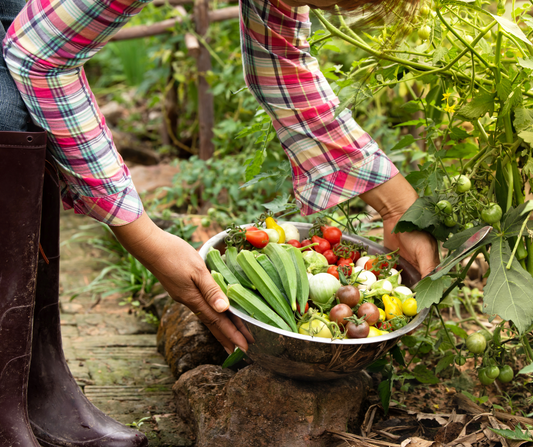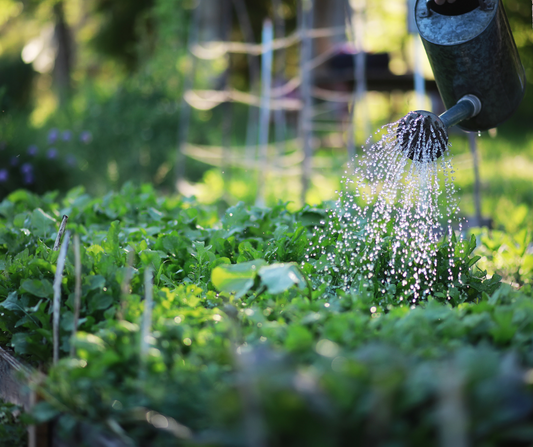Imagine: brewing a potent elixir teeming with beneficial microbes, ready to nourish your soil and supercharge your plant growth. That's the magic of DIY compost tea brewing, an accessible and cost-effective way to tap into the incredible power of soil microbiology.
This blog will guide you through the process, from gathering ingredients to brewing and applying your own compost tea, perfect for both passionate home gardeners and eco-conscious farmers.
Why Compost Tea?
Healthy soil teems with a diverse community of microorganisms, from bacteria and fungi to protozoa and nematodes. These tiny allies work tirelessly to break down organic matter, release essential nutrients, and protect plants from disease. Unfortunately, modern agricultural practices often disrupt this delicate balance, leading to depleted soil and struggling plants.
Compost tea, brewed with high-quality compost and aerated water, provides a concentrated boost of beneficial microbes directly to your soil. Think of it as a probiotic drink for your garden, restoring microbial balance and unlocking a wealth of benefits:
- Enhanced plant growth and yield: Microbes improve nutrient uptake, root development, and overall plant health.
- Increased soil fertility: They decompose organic matter, releasing essential nutrients for plants to thrive.
- Improved soil structure: Fungi act like living glue, binding soil particles together, enhancing water retention and drainage.
- Boosted disease and pest resistance: Beneficial microbes compete with harmful pathogens, creating a natural defence system for your plants.
Ready to brew your own magic potion? Let's get started!
The Essentials:
- Compost Tea Brewer: Invest in a quality brewer like the Better Biology Compost Tea Brewer. It ensures proper aeration, a crucial factor for brewing healthy tea.
- High-Quality Compost: Choose well-aged, diverse compost that smells earthy and crumbles easily. Look for local sources or consider Better Biology to enhance your existing compost.
- Microbiology Sprayer: Opt for a durable sprayer to accurately apply your tea to plants and soil.
- Aerated Water: Remove chlorine from your tap water by letting it sit overnight or using a filter or aerating it to gas off the chlorine.
- Additional Ingredients: Depending on your desired outcome, you may add natural "food sources" for specific microbes, like molasses for bacteria or kelp for fungi. Better Biology offers a range of Soil Amendments like specifically designed for compost tea brewing.
The Brewing Process:
- Fill your brewer with clean water.
- Add your chosen amount of compost (follow your brewer's instructions).
- Optional: Add food sources for specific microbes based on your needs.
- Turn on your brewer and let it aerate for the recommended time (usually 24-48 hours).
- Monitor the colour. A healthy brew should turn brown as beneficial microbes multiply and the humic acids are released.
- Filter your tea and apply it directly to your soil or foliage using your sprayer.
Tips for Success:
- Start small and experiment! Different approaches work for different gardens, so observe your plants and adjust your recipes as needed.
- Maintain good hygiene. Wash your hands and equipment before and after brewing.
- Use your tea fresh. Ideally, apply within 24 hours for optimal microbial activity.
- Combine with other sustainable practices. Compost tea works best alongside healthy soil practices like cover cropping and mulching.
Get inspired!
For further reading and in-depth information, check out these helpful resources:
- Better Biology Website: https://www.betterbiology.com.au/
- The Rodale Institute: https://rodaleinstitute.org/blog/compost-tea-a-how-to-guide/
- A Beginner's Guide to Brewing Compost Tea: https://www.youtube.com/watch?v=Jwc_nyCHFtI
Share your journey!
Compost tea brewing is a rewarding and empowering experience. Share your DIY journey, ask questions, and connect with other like-minded individuals in the comments below. Remember, healthy soil equals healthy plants, and together, we can create a more sustainable future through the power of microbiology!




